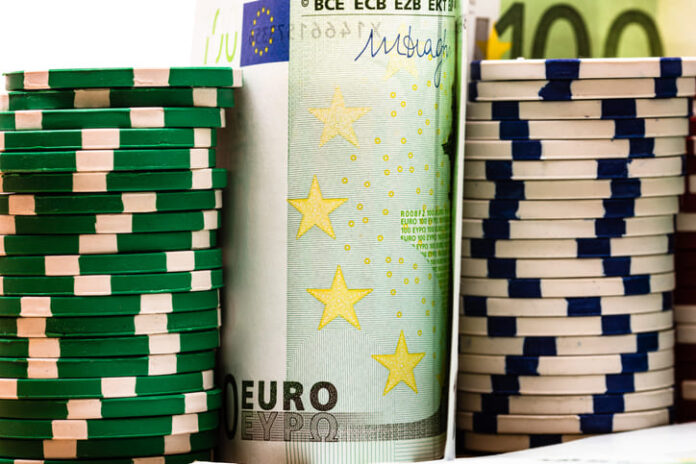The European gambling industry is going through major changes. As public attitudes shift and governments seek new revenue streams, the late 2020s present both significant challenges and opportunities for regulated gambling companies.
Making it Legal: The Challenges
The legalisation of gambling has become a trend across our continent, spurred by increasing recognition of its enormous economic potential. Nations that were previously resistant to gambling are thinking again, inspired and threatened by success stories from their neighbours.
Take Germany. Europe’s biggest economy was late to the trend, but the introduction of the Interstate Treaty on Gambling (GlüStV 2021) in mid-2021 laid the groundwork for a joined-up German gambling framework. The treaty allowed licensed casino operators and bookmakers to provide online slots, poker, and sports betting, albeit under strict rules. For companies willing to embrace the compliance-heavy framework, Germany is a big deal, with a population of over 83 million and an appetite for legal gambling, particularly sports betting.
The Netherlands’ Remote Gambling Act, which came into force in 2021, has revolutionised its market. Dutch regulators are taking a tough line, with an emphasis on player protection and tight advertising guardrails. This balance between access and regulatory disciplines offers a road map for other nations thinking about legalising, such as Ireland, where reform discussions continue.
Regulatory Downsides
Still, regulated gambling companies face some hefty hurdles. This is particularly true when it comes to compliance. Europe’s patchwork quilt of gambling laws makes it rough for multinational operators trying to cover multiple markets.
Sweden is a top example. Its re-regulated market, governed by the Swedish Gambling Act of 2019, is marked by strict advertising controls, deposit limits, and a licensing system that prioritizes consumer protection. This makes a safer gambling environment, but it hikes up costs for betting companies. A similar thing is happening in Spain, where the Royal Decree on Commercial Communications (2021) dropped heavy restrictions on gambling advertisements, with the aim of limiting problem gambling.
Italy and Belgium have similar issues. They both have mature gambling markets, but also pose challenges in the form of advertising bans and restrictions on bonuses, respectively. These measures have been brought in on the grounds of player and customer safety, and they require gambling operators to rethink their marketing style to balance engagement in tough, competitive markets with compliance.
Cross-Border Cooperation and Standardization
The European Union (EU) has yet to establish a unified gambling framework, leaving regulation largely to individual member states, but there’s big pressure for cross-border cooperation. This is most obvious on anti-money laundering (AML) and responsible betting.
The Fourth and Fifth EU AML Directives, which lay out stricter constraints on financial transactions across national borders represent the international co-ordination that can help betting companies. But complying with these rules takes time and resources. Innovations in AI-driven AML strategies and blockchain technology have some potential for helping companies to manage these challenges effectively, but some of these approaches are in their infancy.
Responsibility in Gambling
As gambling legalization spreads, so too does scrutiny on social responsibility. The public is more concerned about gambling addiction and in this in turn pushes governments Europe-wide to introduce measures designed to protect players.
The United Kingdom’s Gambling Commission remains at the forefront of this trend, continually tightening regulations on affordability checks, advertising, and game design. These changes are also making waves beyond the UK. French politicians are looking at new steps to boost responsible gambling while at the same time overhauling the regulatory framework.
New Tech, New World
The late 2020s are likely to see a surge in new tech. The blockchain, artificial intelligence, and virtual reality (VR) are all set to make a big splash in the gambling sector, and have a lot to offer, giving companies enhanced operational efficiency, while also coming up with new ways to grab customer attention while staying inside the rules.
Blockchain could boost transparency and trust in gambling payments, particularly in nations like Estonia, which have embraced it. Blockchain-powered solutions could redefine how betting licenses are monitored by regulators, and how operators connect with regulators. At the same time, VR has the potential to create more immersive gaming experiences, opening up new opportunities in countries such as Spain and Malta, which are iGaming hotspots.
Strategy and Future-Proofing
To compete in this turbulent legal landscape, gambling companies will have to be proactive. This means investing properly in compliance infrastructure, and it will also entail forging good relationships with local regulators, while using the latest tech to stay abreast of the rules.
And operators will still be able to find a competitive edge if they focus on the full breadth of what users want. There’s evidence that more and more players want to prioritise security, responsible gambling and accessibility when they choose a gambling site. Trusted resources like https://sistercasinofinder.com, which helps players link up with the best sites, are becoming a vital aspect of the gambling ecosystem. Taking account of these platforms can help businesses boost their credibility in an increasingly discerning gambling world.
2025 and Beyond
The European gambling sector’s evolution in the second half of this decade will be shaped by this interaction of legality, regulation and new ideas. Compliance burdens will persist, but there will also be opportunities for operators who have the capacity to adapt, and as governments all over the continent evolve their approaches, the most successful businesses will be those that roll with change and adapt fastest to the new world.
Disclaimer: This article contains sponsored marketing content. It is intended for promotional purposes and should not be considered as an endorsement or recommendation by our website. Readers are encouraged to conduct their own research and exercise their own judgment before making any decisions based on the information provided in this article.





























![“Does Everyone Hear Me OK?”: How to Lead Virtual Teams Effectively iStock-1438575049 (1) [Converted]](https://www.europeanbusinessreview.com/wp-content/uploads/2024/11/iStock-1438575049-1-Converted-100x70.jpg)




